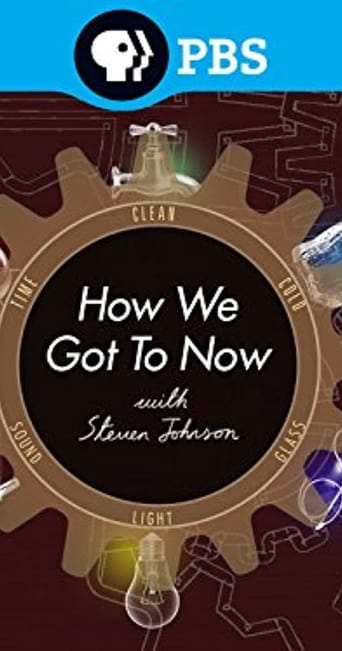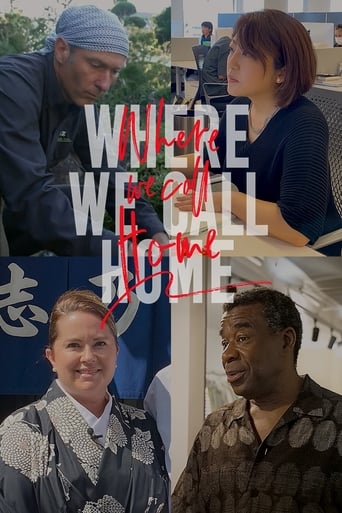RISING Season 6
With 30 Day Free Trial!
RISING
2015
Going beyond the horizon. Meet Japan's entrepreneurs whose innovative thinking is changing traditional mindsets in their various fields of work.
Watch Trailer
RISING Season 6 Full Episode Guide
COVID-19 has hit restaurants hard. Faced with steady running costs despite low sales, some are turning to kitchen cars as a solution. Ishizawa Masayoshi runs a service uniting some 900 independent food truck operators. For a small commission, he matches them with unused patches at office buildings, switching up the selection to give local workers a constantly changing choice of exotic lunch options. As the pandemic runs on, coverage has also expanded to residential areas and medical facilities.
Follow a pioneering Kyoto-based firm that boosts producers across Japan by canning local specialty foods. Under the motto "bringing a brighter future through canned goods," the business, led by former IT engineer Inoue Kazuma, eschews additives to deliver the natural flavor of primary ingredients. From game and seafood, to premium vegetables and other rare and unique delicacies, this unique business fields 20-30 inquiries a month from producers eager to reach a wider audience.
Throughout the COVID-19 pandemic, Japan has placed great emphasis on avoiding the Three Cs: closed spaces, crowding and close contact. Kawano Takanobu runs a business that aims to bring peace of mind through digital systems that allow users to avoid such conditions and curb the risk of infection. Rolled out in restaurants, restrooms, hotels and more, his solutions leverage AI, IoT and sensor technology to help people cope with the new normal.
In recent years, tough working conditions for often-modest pay have brought serious staff shortages for Japan's food service sector, which faces annual staff turnover of almost 30%. Sawanobori Tetsuya runs a groundbreaking business working to address this issue with cutting-edge yet affordable robots designed to lighten workers' load by taking care of food preparation, hygiene and even customer service. Follow a unique enterprise using robotics to revolutionize Japan's catering sector.
In spring 2020, with Japan facing a shortage of protective gowns for medical staff battling COVID-19, one 18-employee apparel firm in Nara Prefecture produced 100 thousand gowns in just 3 months thanks to a nationwide network of tailors working from home. Using a unique online platform, founder Tani Hideki recruited some 250 craftspeople left without work by a declining sewing industry. Moving forward, he aims to develop a new generation of craftspeople suited to the demands of the new normal.
Japan's food supply chain has long followed a model of mass production for mass consumption, with produce from farmers nationwide sent to Tokyo for redistribution, squandering freshness, fuel and money. With calls building for a shift to local production for local consumption, Kato Yuriko stepped in to revitalize regional agriculture with a new approach to logistics, leveraging local vendors, news delivery trucks and more for a system of collection and delivery that follows local bus routes.
With its many volcanoes, Japan has the world's third-highest potential for geothermal energy. In 1984, Hachimantai, Iwate Pref. opened the country's first such power station, with greenhouses reusing the hot spring water to grow vegetables in the harsh northern winters. After falling out of use, they were revived by Kodama Norihiro, who has fused geothermal spring water with the Internet of Things to create a simple, sustainable new agricultural model that aims to revitalize this rural area.
Small scale, specialist technical workshops, or "machikoba," have long been a lynchpin of Japanese manufacturing. But without the ability to effectively communicate their supreme skills, overseas competition and a lack of successors have seen the sector shrink in recent decades. Entrepreneur Furukawa Taku is aiming to change all that, working with a network of over 100 workshops in downtown Tokyo to refresh their old-fashioned business models and promote creative cross-sector collaborations.
In March 2020, to curb the spread of COVID-19, schools across Japan were urged to close, prompting widespread fears that children may fall behind on their studies. Enter Yunokawa Takahiko, developer of a unique e-learning platform that uses AI to assess students' shortcomings and provide an adaptive learning experience to match. Having rolled out to almost 370 schools during the pandemic, Yunokawa aims to provide affordable, egalitarian learning opportunities to students in Japan and overseas.
Widespread school closures due to COVID-19 have thrust online learning resources into the spotlight. In Japan, one such service offering a fun introduction to the world of smartphone and computer programming received 10 thousand signups in just one month, with over 600 schools considering integrating it into their curriculum. We follow founder and former supply teacher Mizuno Yusuke's efforts to bring new opportunities to teenagers at a crucial stage in their educational journey.
In Osaka, Japan's second-largest city, one NPO is working with the homeless to help them get back on their feet. Founder Kawaguchi Kana has launched various initiatives providing temporary work and accommodation as a bridge back into mainstream society. These include a city-wide bike share scheme and a social business selling photos that leverage the unique perspectives of those who live on the streets. Follow a unique enterprise striving towards a society that offers everyone a second chance.
In Japan, a new kind of hotel is giving visitors from around the world the chance to experience Buddhist culture firsthand. Due to depopulation and aging congregations, many of Japan's 77 thousand temples are disused or endangered. Business entrepreneur Mai Sato and ordained priest Shunko Umino are striving to solve this issue by helping temples to find fresh value through hotel facilities that also bring benefits to the broader community.
In Japan, over 6 million tons of food, much of it perfectly edible, go to waste every year. To combat this, Kazuma Kawagoe developed a web application that aims to rescue food otherwise headed for the dumpster. Users can browse and reserve items for collection at reduced prices at registered restaurants and bakeries. Follow a unique venture using technology to raise awareness of this issue and change the attitudes of both, consumers and producers, while reducing the waste of precious food.
As Japan prepares for the Tokyo 2020's big events, efforts are underway to prepare for the arrival of international athletes and spectators, but wheelchair users still face various hurdles. To promote accessibility for those with disabilities, wheelchair user Yuriko Oda created a "barrier-free map" app that helps users locate and share info on elevators and accessible toilets while avoiding steps and other obstacles. Follow a mobile venture aiming for a barrier-free society.
Year round, Japan plays host to an estimated 300 thousand matsuri. But dwindling rural populations and weakened community bonds now place around a quarter of these colorful traditional festivals in jeopardy. Manabu Ohara heads a unique organization that recruits young people from across the country and overseas to help keep these festivals alive, forging ties with locals and giving a much-needed lift to every aspect -- from preparation, to float-bearing, to cleanup.
Free Trial Channels
Seasons



















































